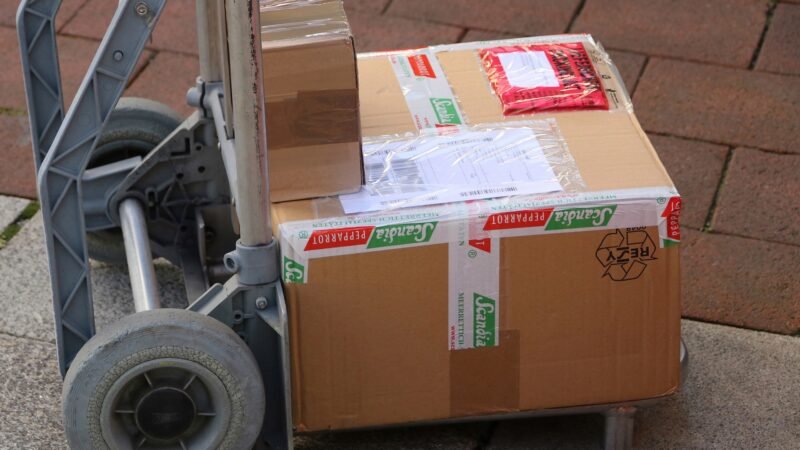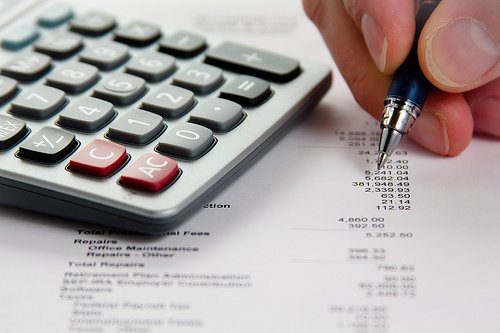Stocks rise as China’s president eases trade fight fears
NEW YORK — Stocks are rising sharply on Wall Street Tuesday after Chinese President Xi Jinping said Beijing would reduce tariffs on imported cars and improve intellectual property protection, steps that could ease tensions with the U.S.
Lower tariffs could mean better sales for U.S. car companies, while banks could also gain entry into the Chinese market. That sent automakers and financial companies higher.
Energy companies jumped along with the price of oil, a sign investors are getting more confident that the trade tensions won’t have a big effect on the global economy. Technology and industrial companies also rose.
The S&P 500 index surged 35 points, or 1.3 percent, to 2,647 as of 12:37 p.m. Eastern time. The Dow gained 358 points, or 1.5 percent, to 24,338. Shortly before noon it rose as much as 532 points. The Nasdaq composite added 97 points, or 1.4 percent, to 7,048. The Russell 2000 index of smaller-company stocks advanced 20 points, or 1.4 percent, to 1,534.
Stocks had been on track for a similarly big jump Monday before a late slump wiped out most of their gains. The Dow rose as much as 440 points during the day, but finished just 46 points higher.
Indexes overseas also climbed. Germany’s DAX jumped 1.1 percent and the British FTSE 100 gained 1 percent. The French CAC 40 gained 0.8 percent. Japan’s benchmark Nikkei 225 gained 0.5 percent and South Korea’s Kospi added 0.3 percent while Hong Kong’s Hang Seng added 1.7 percent.
Speaking at a business conference, Xi promised changes in areas that the U.S. has identified as priorities. He didn’t address other thorny topics including requirements for foreign companies to give technology to potential local competitors.
General Motors rose 94 cents, or 2.5 percent, to $38.77 and Ford rose 27 cents, or 2.4 percent, to $11.52. Tesla climbed $14.72, or 5.1 percent, to $304.38.
Among banks, JPMorgan Chase gained $1.83, or 1.6 percent, to $112.23 and Citigroup picked up $1.29, or 1.9 percent, to $70.73.
Facebook CEO Mark Zuckerberg is scheduled to testify before two Senate committees Tuesday afternoon, and the company has started alerting some users that their data was swept up by Cambridge Analytica in the privacy scandal that has engulfed Facebook over the last four weeks. As many as 87 million users were affected.
Facebook shares have dropped sharply since the scandal emerged in March. They rose $1.69, or 1.1 percent, to $159.63 Tuesday.
Technology and industrial companies have made some of the biggest swings on the market during the trade spat. If the U.S. and China both place tariffs on imports from the other, industrials face greater costs as well as with lower sales. Technology companies might face manufacturing changes and slower growth in the global economy.
Apple climbed $2.56, or 1.5 percent, to $172.61 and chipmaker Texas Instruments gained $1.50, or 1.5 percent, to $101.31. Among industrials, aerospace company Boeing rallied $9.99, or 3.1 percent, to $332.47 and construction equipment maker Caterpillar jumped $4.73, or 3.3 percent, to $147.81.
Benchmark U.S. crude rose $1.80, or 2.8 percent, to $65.22 a barrel in New York. Brent crude, used to price international oils, added $2.02, or 2.9 percent, to $70.67 a barrel in London. Oil prices have bounced up and down recently as investors wonder if the trade dispute will hamper global economic growth.
Exxon Mobil added $2.58, or 3.4 percent, to $77.45 and Marathon Oil jumped 72 cents, or 4.4 percent, to $17.08.
VeriFone Systems surged after it agreed to be bought by Francisco Partners and British Columbia Investment Group. The investment group will pay $23.04 a share, or $2.54 billion, for VeriFone, which makes terminals for electronic payments. VeriFone stock climbed $7.79, or 52 percent, to $22.79.
Bond prices turned lower. The yield on the 10-year Treasury note rose to 2.80 percent from 2.78 percent.
The dollar climbed to 107.26 yen from 106.78 yen. The euro rose to $1.2339 from $1.2322. (AP)



